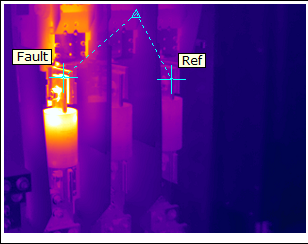Hiring an Electrician Doesn’t Outsource Your Responsibility for Safety
- Adam Brooks

- Jun 23, 2025
- 3 min read
Updated: Sep 4, 2025
When it comes to electrical safety, one of the most common misconceptions we hear is: “We don’t need to worry about that. The contractor handles it.”
Unfortunately, that’s not how it works. If a contractor is working in your facility—even if they’re a third-party provider—you, as the host employer or facility owner, have legal and ethical responsibilities to ensure their safety and the safety of your equipment.
Here’s what you need to know.
What the Standards Say: You Are Responsible
Both OSHA and NFPA 70E® make it clear: building owners and host employers are responsible for the safety of contractors working on site.
NFPA 70E® 2024 - 110.3 specifically outlines the responsibilities of the host employer and the contract employer, including coordination and verification of safety programs.
OSHA’s General Duty Clause (Section 5(a)(1)) requires that each employer provide a workplace free from recognized hazards. This applies not only to your direct employees but to everyone on site, including contractors.
NFPA 70E® 2024 further reinforces these responsibilities, stating that host employers must communicate known hazards and ensure that contractors are appropriately trained and qualified.
So, no, hiring a contractor does not relieve you of responsibility. If something goes wrong, you are accountable, too—and in legal cases, the host employer is almost always included.
The Real-World Risk: An Overlooked Liability

We’ve heard it too many times:
“They said they were qualified.”
“It’s their job to know better.”
“They’ve worked on this type of equipment before.”
But what happens when they’re not as qualified as they claimed?
We’ve seen examples of contractors removing arc flash labels thinking that somehow relieved them from having to comply with PPE recommendations. Some have performed unauthorized live work, or they cut holes and land wires inside energized panels—all in violation of safety protocols. In one case, the host employer immediately removed the contractor from the site. It was the right decision, but it could have been prevented with stronger vetting up front.
Due Diligence Matters: Vet Before You Let Them In
Here’s what you can do to verify that contractors working in your facility are truly qualified:
1. Request Documentation
Ask for proof of:
Proof of Qualified Electrical Worker (QEW) training - Including knowledge of electrical, arc flash, and shock hazards, PPE training, safe testing procedures, and understanding of NFPA 70E® safe work practices.
OSHA 10/30 cards (for general awareness)
2. Ask Specific Questions
Who qualifies your electrical workers internally, and what are the requirements?
What arc flash and shock training have they received?
How do they handle lockout/tagout (LOTO)?
Have their workers been tested on NFPA 70E®?
3. Set Clear Expectations
Many companies require contractors to go through the same electrical safety training as their employees, even if the contractor has completed training at its company.
This isn’t just about compliance. It’s about ensuring everyone on site is working from the same playbook.
At Guidant, we’ve helped many facility owners train both their internal teams and their contractors, ensuring a consistent and compliant safety standard across the board.
Your Facility, Your Responsibility
It doesn’t matter who signs the contractor’s paycheck. If they’re working inside your facility, their safety—and yours—is on the line and you, the owner, are responsible.
So before your next job starts, ask yourself:
Do I know if this contractor is truly qualified?
Have I verified their safety practices?
Would I trust them to work on my most critical equipment?
If the answer is anything less than a confident yes, it’s time to revisit your contractor safety protocols.
Need Help? We’re Here.
Guidant Power offers electrical safety training for contractors and host employers alike. From basic compliance to Qualified Electrical Worker classes, we can help ensure everyone on your site is properly trained and working safely.
Let’s make sure everyone goes home safe. Contact us to discuss training options for your contractors.
70E®, Standard for Electrical Safety in the Workplace®, NFPA 70®, NEC®, and National Electrical Code® are registered trademarks of the National Fire Protection Association, Quincy, MA. All rights reserved. This informational material is not affiliated with nor has it been reviewed or approved by the NFPA.



